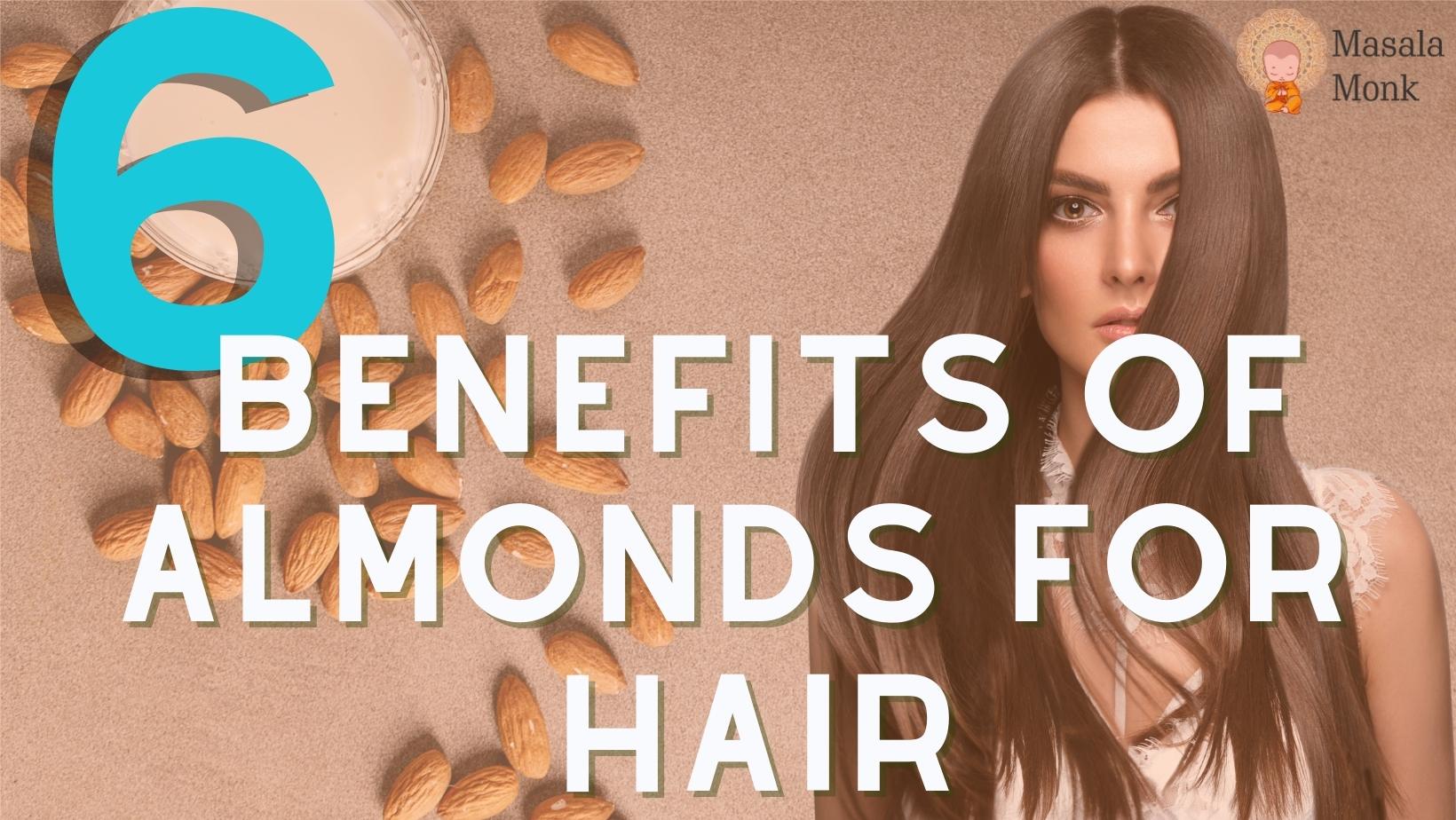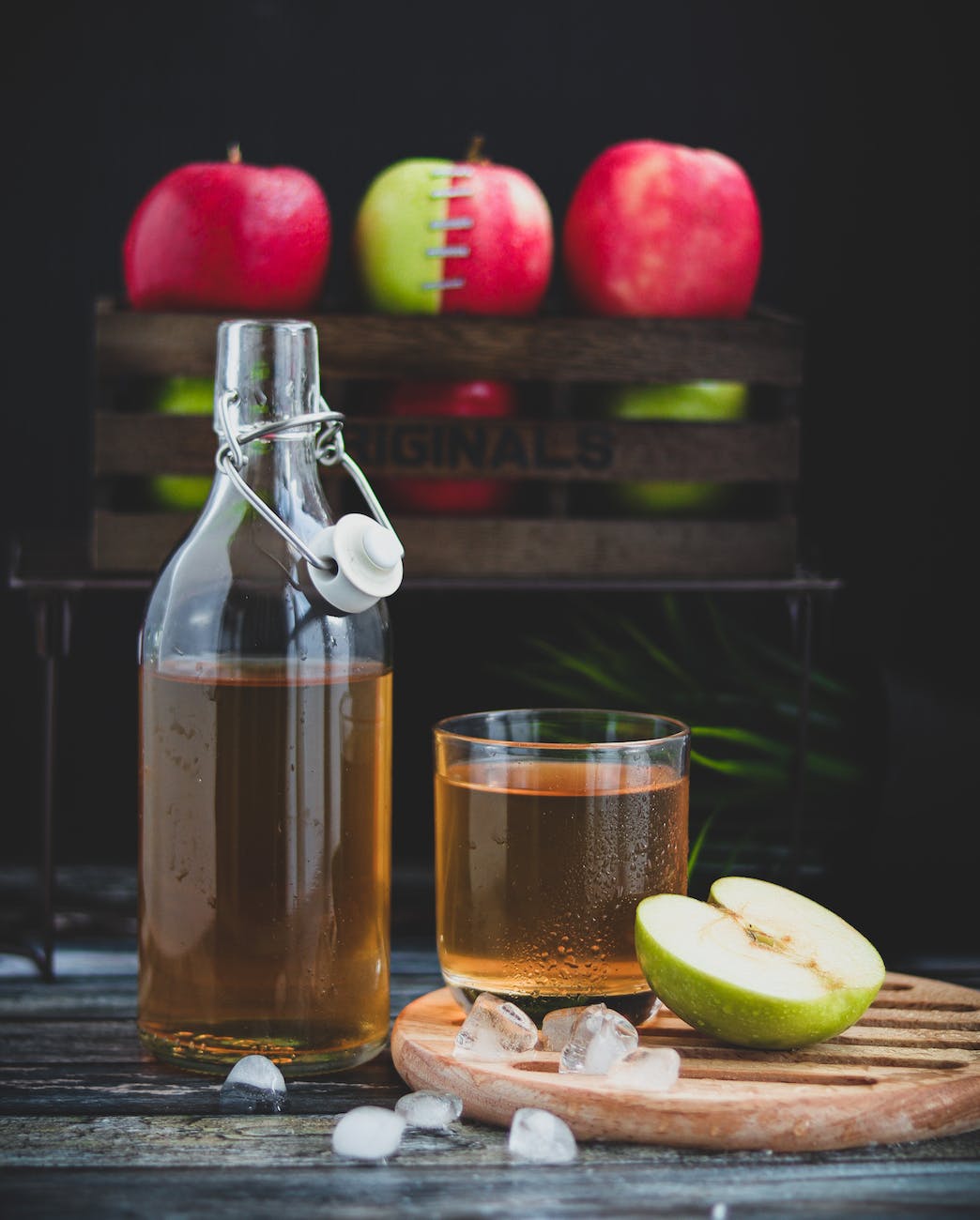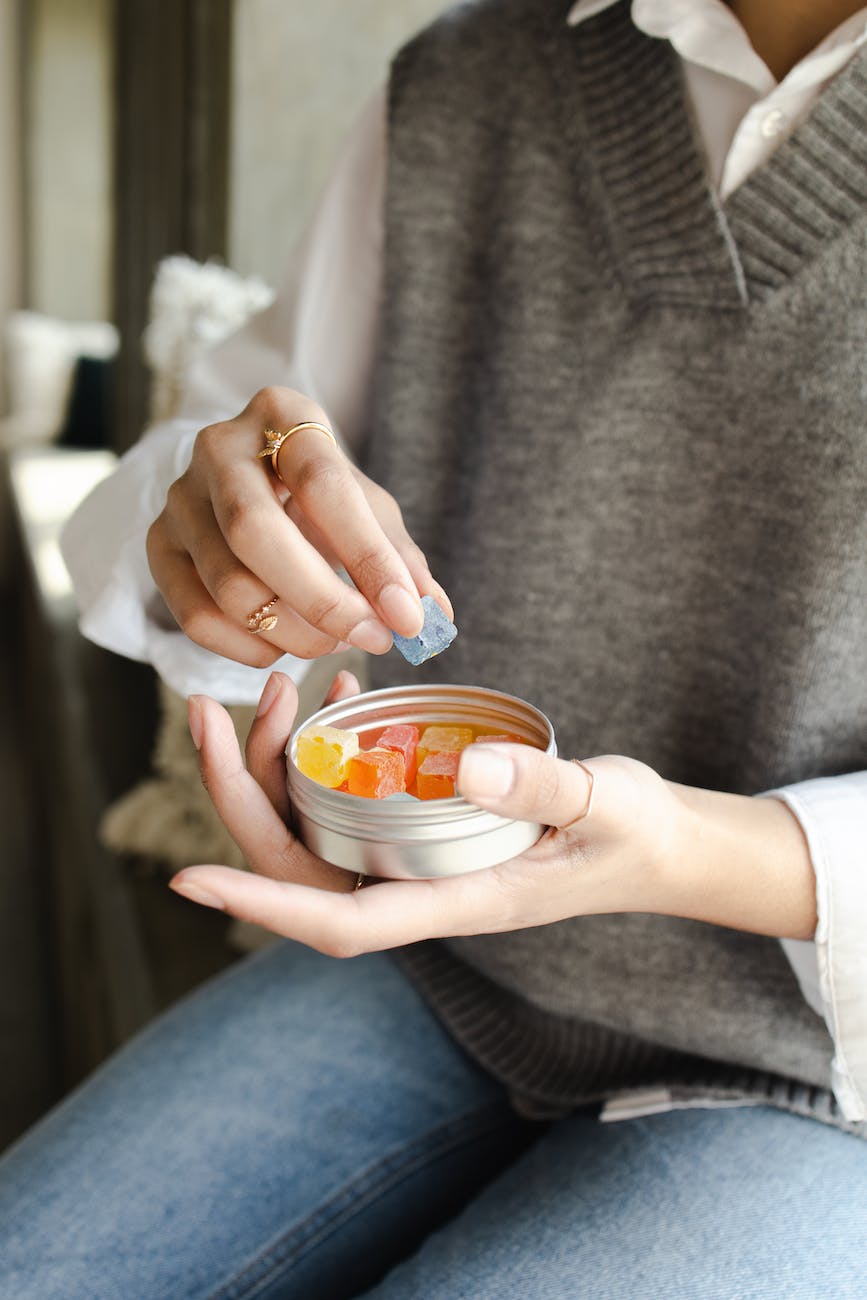
The Incredible Benefits of Almonds for Hair Health
Almonds, often hailed as the king of nuts, are not only a delightful snack but also a powerhouse of nutrients. While many of us are aware of their health benefits, it’s the wonders they do for our hair that often go unnoticed. This article delves deep into the myriad of benefits almonds offer for hair health, backed by science and trusted by many.
1. The Nutritional Powerhouse: What Makes Almonds Special?
Almonds are more than just a crunchy delight; they are a treasure trove of essential nutrients. Rich in Vitamin E, magnesium, omega fatty acids, and proteins, almonds have all the vital elements that your hair craves.
- Vitamin E: Acts as a natural antioxidant, Vitamin E supports scalp health, reducing oxidative stress and free radicals that can lead to hair thinning.
- Magnesium: A deficiency in magnesium can lead to hair loss. Fortunately, almonds are a rich source, ensuring that your hair remains thick and voluminous.
- Omega Fatty Acids: These essential fats moisturize the hair, giving it a natural shine and strength.
2. Almond Oil vs. Whole Almonds: Which is Better for Hair?
When it comes to hair health, both almond oil and whole almonds have their unique advantages.
- Almond Oil: Extracted from the kernels of almonds, almond oil is a rich emollient, making it perfect for conditioning hair and improving its texture. It’s easily absorbed, ensuring that the hair shaft gets a deep nourishment.
- Whole Almonds: Consuming whole almonds ensures you get a holistic nutrient intake. From fibers to proteins, whole almonds not only benefit your hair but also contribute to overall health.
Tip: For external application, almond oil is your best bet. However, to ensure a holistic approach to hair health, incorporate whole almonds into your diet too.
3. Strengthening Hair with Almonds
Brittle hair can be a bane, leading to split ends and breakage. But with almonds, you have a natural solution at hand.
- Deep Nourishment: Almond oil, when massaged into the scalp, penetrates deep, nourishing the hair roots and strengthening them.
- Antioxidant Power: The rich antioxidant properties of almonds combat environmental stressors, ensuring your hair remains resilient and robust.
Tip: A weekly massage with almond oil can significantly reduce hair breakage and improve its texture.
4. Almonds for Hair Growth
Dreaming of long, Rapunzel-like hair? Almonds might just be your magic potion.
- Stimulating Hair Follicles: The nutrients in almonds, especially magnesium, play a crucial role in promoting hair growth by stimulating hair follicles.
- Improving Blood Circulation: Massaging with almond oil boosts blood circulation in the scalp, ensuring better nutrient delivery to hair roots.
Practical Tip: Wondering how to eat almonds for optimal hair growth benefits? Soaked almonds are a great way to start your day. They’re easier to digest and ensure better nutrient absorption.
By now, it’s evident that almonds are a boon for hair health. But that’s just the tip of the iceberg. From combating dryness to improving scalp health, the benefits of almonds are manifold. As we delve deeper into the topic, you’ll discover more about this wonder nut and how it can transform your hair care routine.
5. The Secret to Lustrous Shine: Almonds
Dull hair can be a downer, especially when you’re all dressed up for a special occasion. Almonds, with their rich nutrient profile, can be the answer to your hair shine woes.
- Natural Moisturizer: Almond oil acts as a natural moisturizer, sealing in the moisture in hair strands, preventing dryness, and giving your hair a glossy finish.
- Protection Against Damage: The Vitamin E in almonds acts as a protective barrier, shielding hair from harmful UV rays and environmental pollutants.
Tip: For an added shine, after washing your hair, rinse with cold water. This, combined with regular almond oil massages, can give your hair a salon-like gloss.
6. Almonds: A Solution to Scalp Issues
A healthy scalp is the foundation of healthy hair. Almonds, with their anti-inflammatory and nourishing properties, ensure your scalp remains in top condition.
- Combatting Dandruff: The moisturizing properties of almond oil can help combat dryness, one of the primary causes of dandruff.
- Soothing Scalp Inflammation: If you’re plagued with an itchy scalp, the anti-inflammatory properties of almonds can come to your rescue, soothing irritation and inflammation.
Practical Tip: Mix almond oil with tea tree oil for an anti-dandruff hair mask. The combination can work wonders in keeping dandruff at bay.
7. Almonds and Hair Thickness
Thinning hair can be a concern for many. Almonds, with their rich protein content, can be the key to adding volume to your hair.
- Protein Boost: Hair is primarily made up of protein. Almonds, being a good protein source, ensure your hair has the necessary building blocks to grow thick and strong.
- Minimizing Hair Fall: The nutrients in almonds, especially magnesium, play a pivotal role in reducing hair fall, ensuring your mane remains thick and voluminous.
Tip: Incorporate almonds in your daily diet. Whether it’s snacking on a handful or adding them to your salads, ensure you’re getting your daily dose of almonds.
8. The Versatility of Almonds in Hair Care
Almonds are not just for consumption or direct application. They can be incorporated into various hair care routines for enhanced benefits.
- Almond-based Hair Masks: Combine almond oil with ingredients like honey or yogurt for a nourishing hair mask.
- Almond-infused Hair Products: Many shampoos, conditioners, and serums today come enriched with almond extracts, harnessing its benefits for better hair health.
Practical Tip: When shopping for hair products, look for those enriched with almond extracts. They can offer added nourishment and protection.
With the myriad of benefits they offer, it’s no wonder almonds have been a staple in hair care routines for centuries. From ancient beauty secrets to modern hair care products, the humble almond has always found its place, promising lustrous, healthy hair. As we proceed, we’ll explore more about almonds, debunking myths, and offering insights into making the most of this wonder nut for your hair’s health.
9. Debunking Myths: Almonds and Hair Growth
In the world of beauty and health, myths abound. Let’s address some common misconceptions about almonds and hair growth.
- Overnight Magic? While almonds are beneficial for hair health, expecting overnight results is unrealistic. Consistent use and a balanced diet are key.
- Quantity Matters: Eating a kilogram of almonds daily won’t speed up hair growth. Moderation is essential. Overconsumption can lead to other health issues.
Practical Tip: Stick to a handful of almonds daily. It’s the consistent, moderate intake that yields results over time.
10. Almonds Beyond Hair: A Holistic Approach
While we’ve extensively discussed hair benefits, almonds are a powerhouse of nutrition affecting overall health.
- Skin Health: Almonds are great for the skin, offering hydration and reducing signs of aging.
- Heart Health: Regular almond consumption can help reduce bad cholesterol levels, promoting heart health.
- Digestive Health: Almonds are rich in fiber, aiding in digestion and promoting gut health.
Tip: Almonds are a holistic health booster. Incorporate them not just for hair but overall well-being.
11. Making the Most of Almonds in Your Routine
To truly harness the benefits of almonds, it’s essential to know how to incorporate them effectively.
- Soaked vs. Raw: Soaked almonds are easier to digest and can release more nutrients. However, raw almonds still offer significant benefits.
- Almond Oil Massages: Regular scalp massages with almond oil can boost blood circulation, promoting hair growth.
- Almond-based Hair Products: As mentioned, many hair care products contain almond extracts. Choose those that fit your hair type and concerns.
Practical Tip: Create a weekly hair care routine. This could include an almond oil massage, an almond-based hair mask, and regular consumption of almonds.
Conclusion
Almonds, with their rich nutrient profile, have proven to be a boon for hair health. From promoting growth, adding shine, to combating common hair issues, the benefits are manifold. However, as with any natural remedy, patience and consistency are key. Incorporate almonds into your daily routine, give it time, and watch your hair transform. Remember, it’s not just about external application; what you consume plays an equally vital role. So, the next time you munch on those crunchy almonds, know that you’re taking a step towards lustrous, healthy hair.
FAQs
- How do almonds benefit hair growth?
Almonds are packed with essential nutrients like vitamin E, magnesium, and omega fatty acids, which nourish the hair follicles, strengthen hair strands, and promote hair growth. - How many almonds should I consume daily for optimal hair health?
A handful of almonds, approximately 8-10, is recommended for daily consumption to harness its benefits for hair and overall health. - Is it better to eat soaked almonds or raw almonds for hair growth?
Soaked almonds are easier to digest and can release more nutrients, making them slightly more beneficial. However, raw almonds still offer significant hair health benefits. - Can I use almond oil for hair growth?
Absolutely! Regular scalp massages with almond oil can boost blood circulation, promoting hair growth and adding shine to your hair. - Are there any side effects of consuming too many almonds for hair growth?
While almonds are beneficial, overconsumption can lead to digestive issues and nutrient imbalances. It’s essential to consume them in moderation. - How long does it take to see the benefits of almonds on hair?
Consistent consumption and use of almonds or almond-based products over a few months can show noticeable improvements in hair health. - Do almond-based hair products offer the same benefits as consuming almonds?
While almond-based hair products provide external nourishment and can be beneficial, consuming almonds directly ensures you get the full range of nutrients that benefit hair growth from the inside out. - What other health benefits do almonds offer besides hair growth?
Almonds are great for skin hydration, reducing signs of aging, promoting heart health, and aiding digestion due to their rich fiber content. - Can almonds help in reducing hair fall?
Yes, the nutrients in almonds, especially vitamin E and omega fatty acids, can strengthen hair strands, reducing hair breakage and fall. - Are there any specific almond varieties best suited for hair growth?
All almonds offer hair benefits, but organic and raw almonds might retain more nutrients than heavily processed or flavored varieties.
Blog Tags:
Almond Benefits, Hair Growth, Natural Hair Care, Almond Oil, Nutritional Benefits, Hair Health, Almond Consumption, Hair Care Routine, Almond Nutrients, Hair Strength, Scalp Health, Holistic Hair Care.













